Living a longer, healthier life is a common goal for many. Diet plays a crucial role in helping achieve this aim. By incorporating specific foods known for their health benefits, individuals can improve their chances of increasing their lifespan.
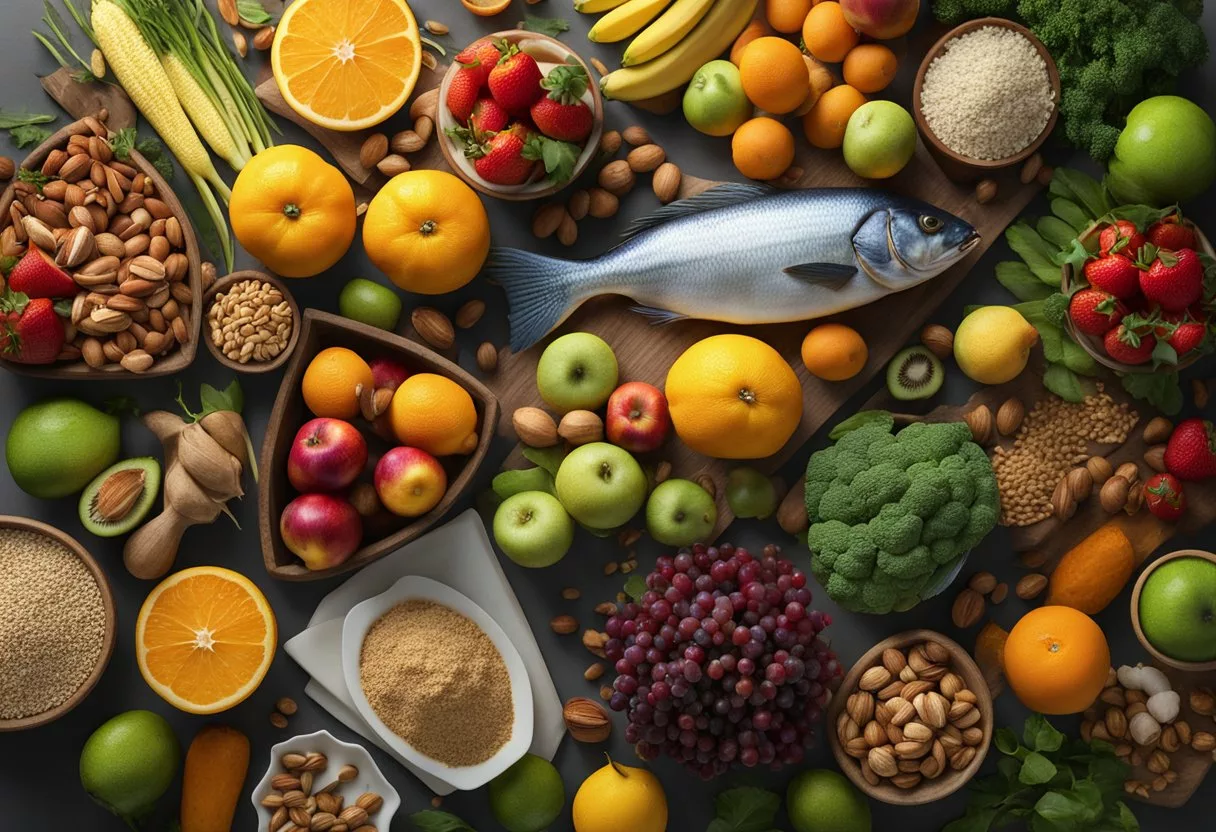
What are the best foods to eat for longevity? This article explores ten all-time favorite foods that nutrition experts recommend for promoting a longer, healthier life. From plant-based proteins to nutrient-rich vegetables, these foods are known for their ability to support overall health and well-being.
1) Blueberries
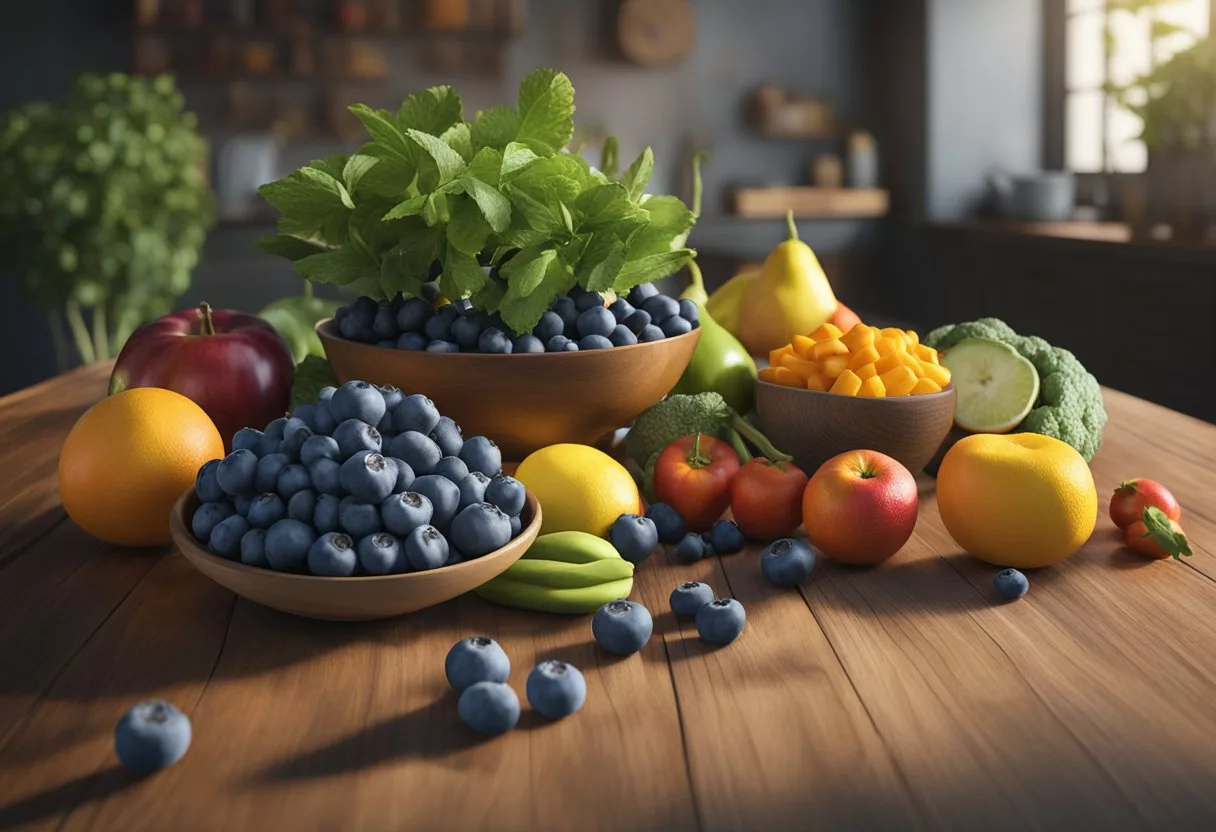
Blueberries are small but packed with benefits. They are known for their high levels of vitamin C, which is essential for a healthy immune system. One cup of blueberries can provide around 15% of the recommended daily intake of vitamin C.
These berries are also rich in antioxidants. Antioxidants help fight free radicals in the body, which can reduce the risk of chronic diseases.
Blueberries support the nervous, immune, bone, cartilage, and blood systems. Their nutrients contribute to overall health and longevity.
In addition to vitamins, blueberries are a good source of dietary fiber, which promotes a healthy digestive system. They can help regulate blood sugar levels and support a healthy microbiome.
Incorporating blueberries into your diet is simple. They can be eaten fresh, added to smoothies, or used in baking. With their sweet taste and numerous health benefits, blueberries are a smart choice for anyone looking to improve their diet and health.
2) Salmon
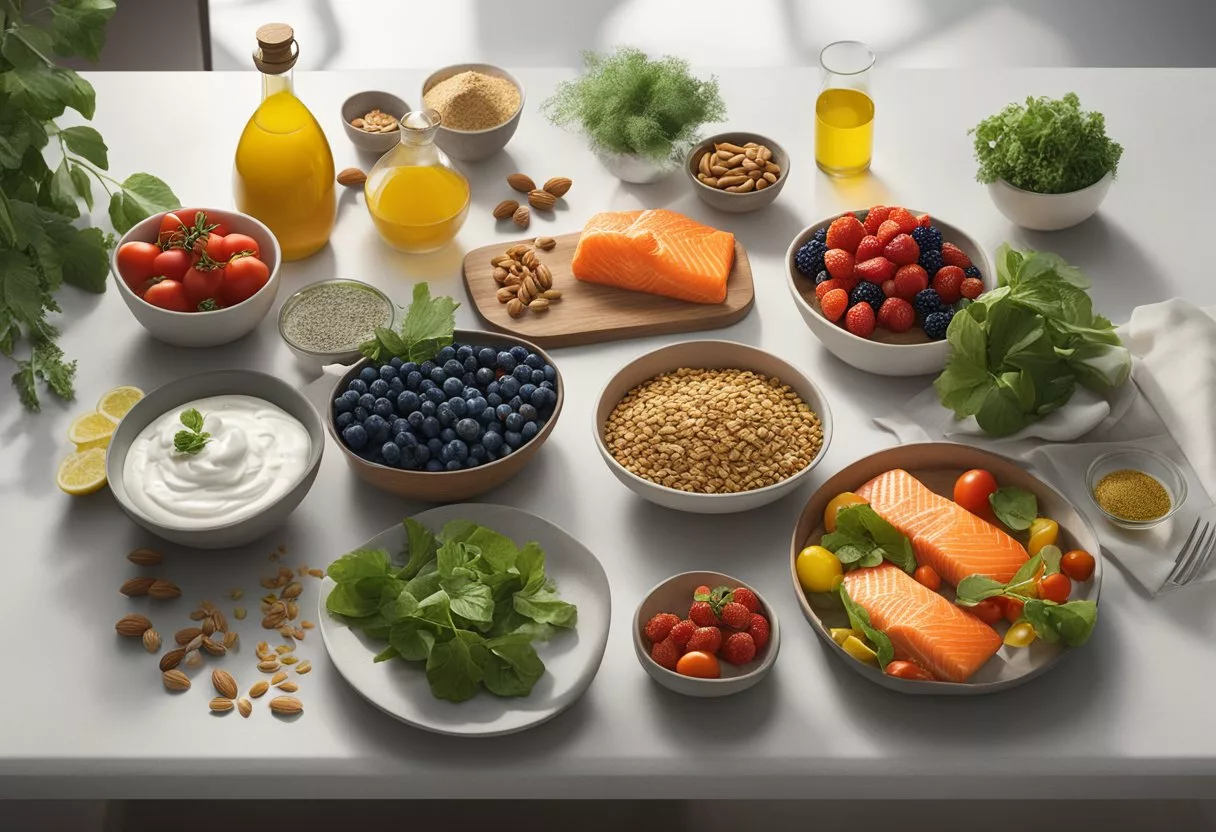
Salmon is a nutritious fish linked to many health benefits. It is an excellent source of protein, providing about 22 grams of protein per 3-ounce serving. Salmon is also rich in vitamins and minerals such as zinc, selenium, iodine, and vitamin D, which are essential for maintaining overall health.
The omega-3 fatty acids in salmon are particularly beneficial for heart health. These fatty acids can help reduce the risk of heart disease by lowering cholesterol levels and decreasing inflammation. Fatty fish like salmon contains DHA and EPA, important for brain function and overall cognitive health.
Salmon also provides essential B-vitamins and iron. These nutrients are vital for energy production and can help lower the risk of anemia. Regular consumption of salmon may lower the risk of sudden cardiac death by up to 90%, highlighting its importance for longevity.
Adding salmon to a balanced diet can be a delicious way to support overall wellness and longevity. For more information about the benefits of salmon, you can visit this Livestrong article on salmon benefits and this EatingWell article on foods associated with living longer.
3) Nuts and Seeds
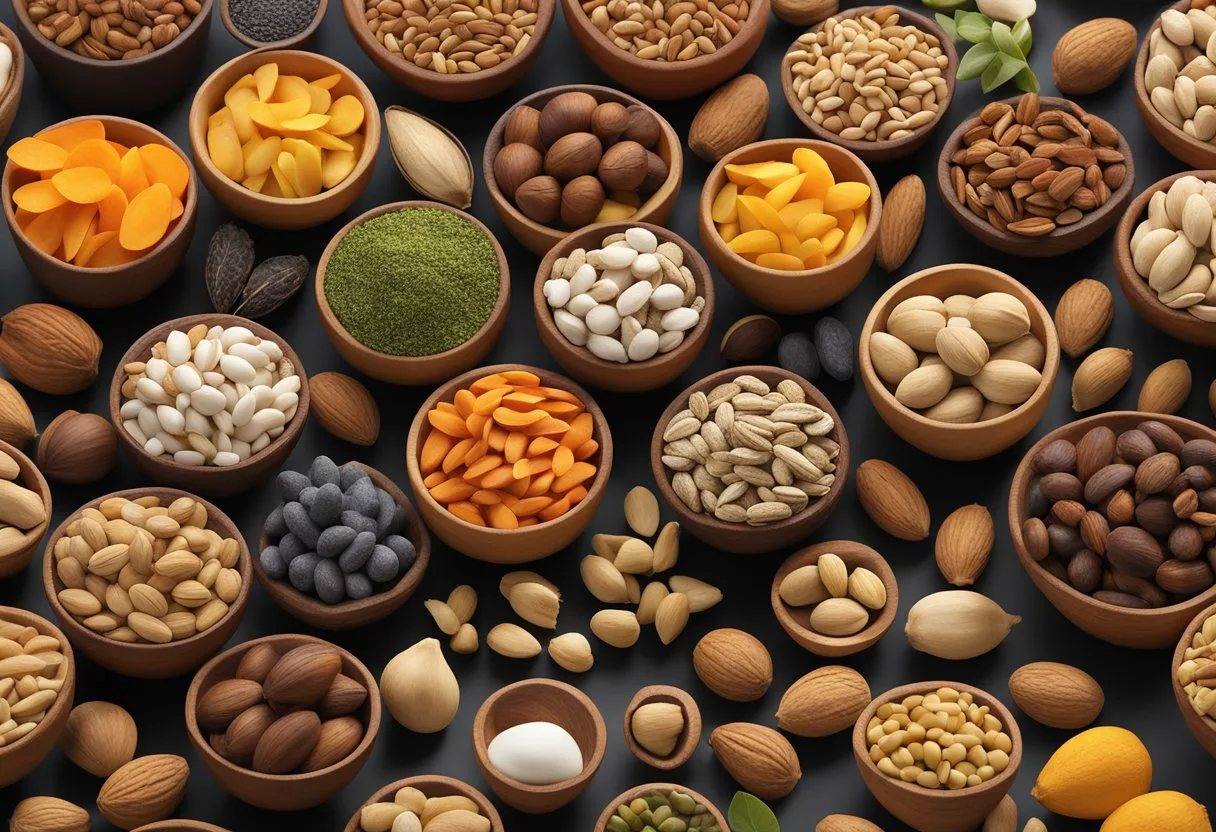
Nuts and seeds are essential for longevity. They are rich in protein and fiber, which are important for the body’s daily functions. Almonds, for example, can help lower visceral fat and improve insulin sensitivity.
Seeds like sunflower and pumpkin seeds are also beneficial. These seeds are packed with nutrients that promote heart health and reduce inflammation.
Tree nuts such as walnuts and pistachios are good for the brain. Regular consumption of these nuts can help support memory and cognitive function as people age.
Nuts and seeds are versatile and can be easily added to various meals. They can be sprinkled over salads, mixed into yogurt, or enjoyed on their own as a snack.
Eating a variety of nuts and seeds daily helps ensure a good intake of essential vitamins and minerals. This variety supports overall health and well-being, making them a key part of a diet for longevity.
4) Dark Chocolate
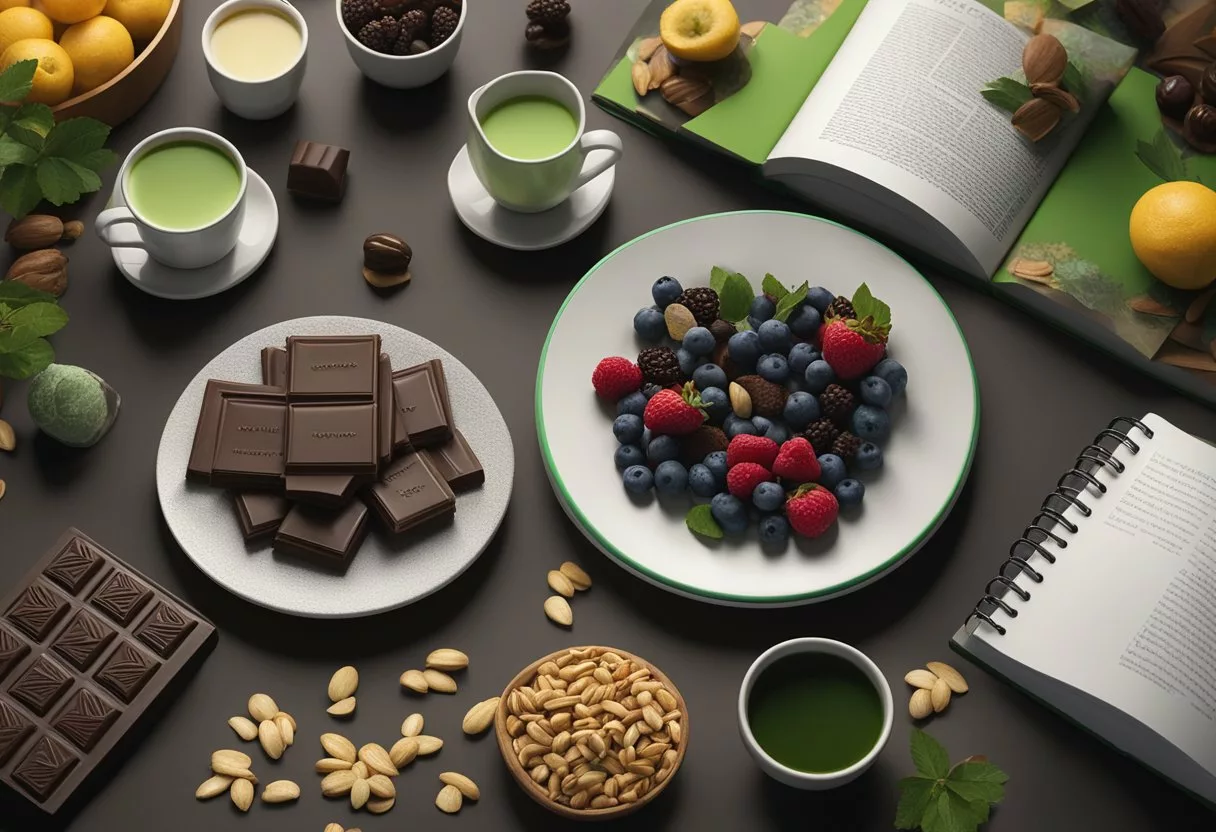
Dark chocolate can be a delicious treat that also supports longevity. Research shows that consuming small amounts of dark chocolate can reduce the risk of heart disease and stroke. The key component here is cocoa, which is rich in flavonoids.
Flavonoids are antioxidants that help protect the heart by improving blood flow and lowering blood pressure. Studies suggest eating around 6 grams or 0.2 ounces of dark chocolate daily might be beneficial.
Additionally, dark chocolate may help manage type 2 diabetes by improving insulin sensitivity. This means the body can use insulin more effectively, helping to control blood sugar levels.
People who eat dark chocolate regularly also enjoy improved brain function. The flavonoids increase blood flow to the brain, possibly enhancing memory and cognitive performance.
Incorporating a small piece of dark chocolate into a daily routine can be a simple and tasty way to support long-term health. For more on its benefits, you can read about dark chocolate and longevity.
5) Olive Oil
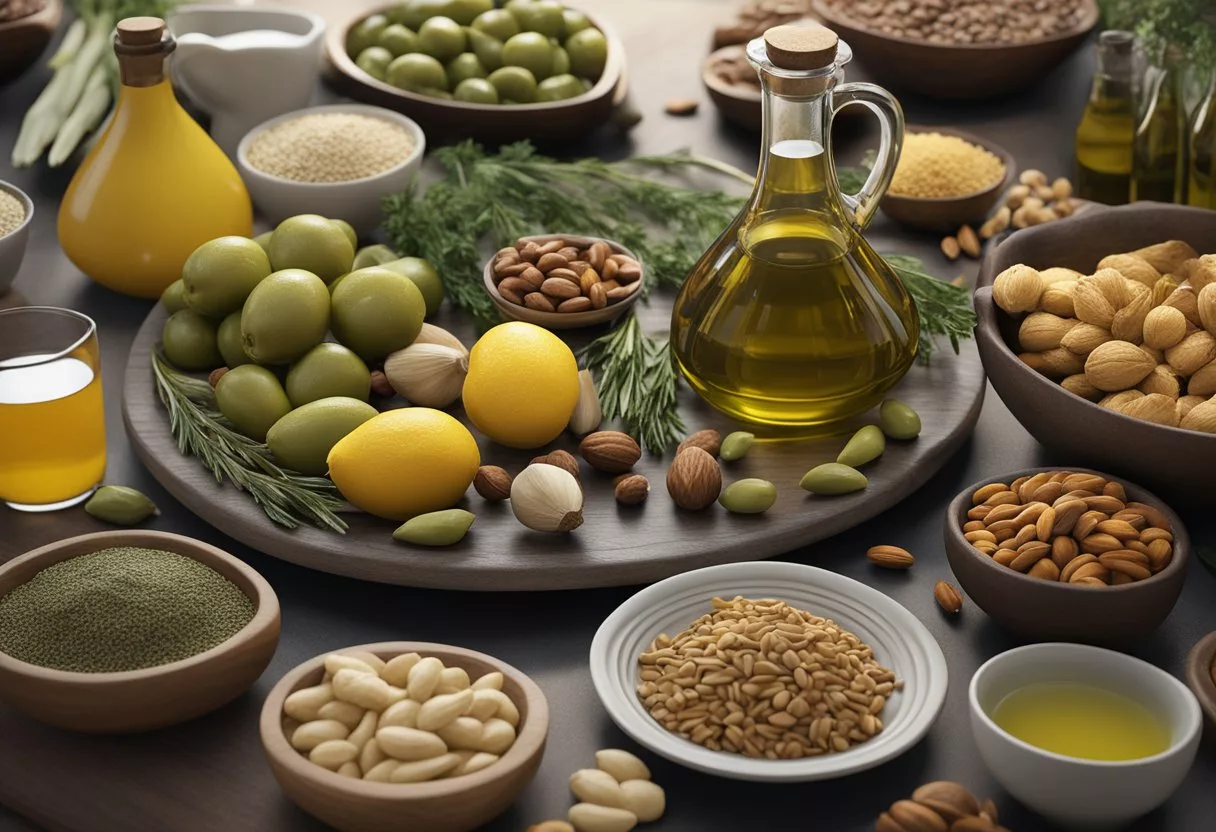
Olive oil is a staple in many kitchens, renowned for its health benefits and rich flavor. It is a key part of the Mediterranean diet, which is linked to various health improvements.
High in monounsaturated fats, olive oil helps lower bad cholesterol levels. This can reduce the risk of heart disease.
Rich in antioxidants, olive oil has anti-inflammatory properties. These can help protect cells from damage.
Recent research from Harvard suggests that high olive oil consumption is associated with a longer lifespan. Replacing butter or margarine with olive oil could be beneficial.
It’s best to use extra virgin olive oil, which is less processed and retains more nutrients. This type is often praised for its taste and higher antioxidant content.
Incorporating olive oil into daily meals, like drizzling it over salads or using it in cooking, can make a positive impact on health. It’s a simple change with significant benefits for longevity.
6) Green Tea

Green tea is widely known for its health benefits. It contains powerful antioxidants called catechins. These help reduce inflammation and fight cell damage.
People who drink green tea regularly may experience lower risks of certain cancers and heart diseases. This makes it a popular choice for those wanting to live longer.
Green tea may also help improve brain function. It contains caffeine and L-theanine, which together can enhance brain performance and mood.
Drinking green tea can aid in weight management. It boosts metabolism and helps burn fat more effectively. For many, this is an added reason to include it in their diet.
Studies suggest that green tea may lower LDL cholesterol, also known as “bad” cholesterol. This can lead to better heart health and reduced risk of heart-related issues.
For those looking for a healthy beverage, green tea is a smart option. Enjoying a cup or two daily can be a simple habit that contributes to overall well-being. For more details on its benefits, visit 10 Evidence-Based Benefits of Green Tea.
7) Garlic

Garlic is a powerful food known for its numerous health benefits. It has been used for centuries in traditional medicine. One of garlic’s key compounds is allicin, which contributes to its health-promoting properties.
Garlic helps support the immune system. Studies have shown that regular garlic consumption may reduce the duration of common colds and illnesses. It is also known to have antimicrobial and antiviral properties.
Garlic is beneficial for heart health. It may help lower blood pressure and reduce cholesterol levels. These effects contribute to a lower risk of cardiovascular diseases.
There is some evidence that garlic can help with detoxification. It supports the liver in removing toxins from the body. This process promotes overall wellness and longevity.
Garlic contains antioxidants. These compounds combat free radicals and may reduce oxidative stress. This helps protect cells and may slow down the aging process.
Adding garlic to meals is easy. It can be incorporated into various dishes for both flavor and health benefits. Raw, cooked, or even in supplement form, garlic can enhance a diet aimed at longevity.
For more about the benefits of foods like garlic, visit EatingWell.
8) Turmeric
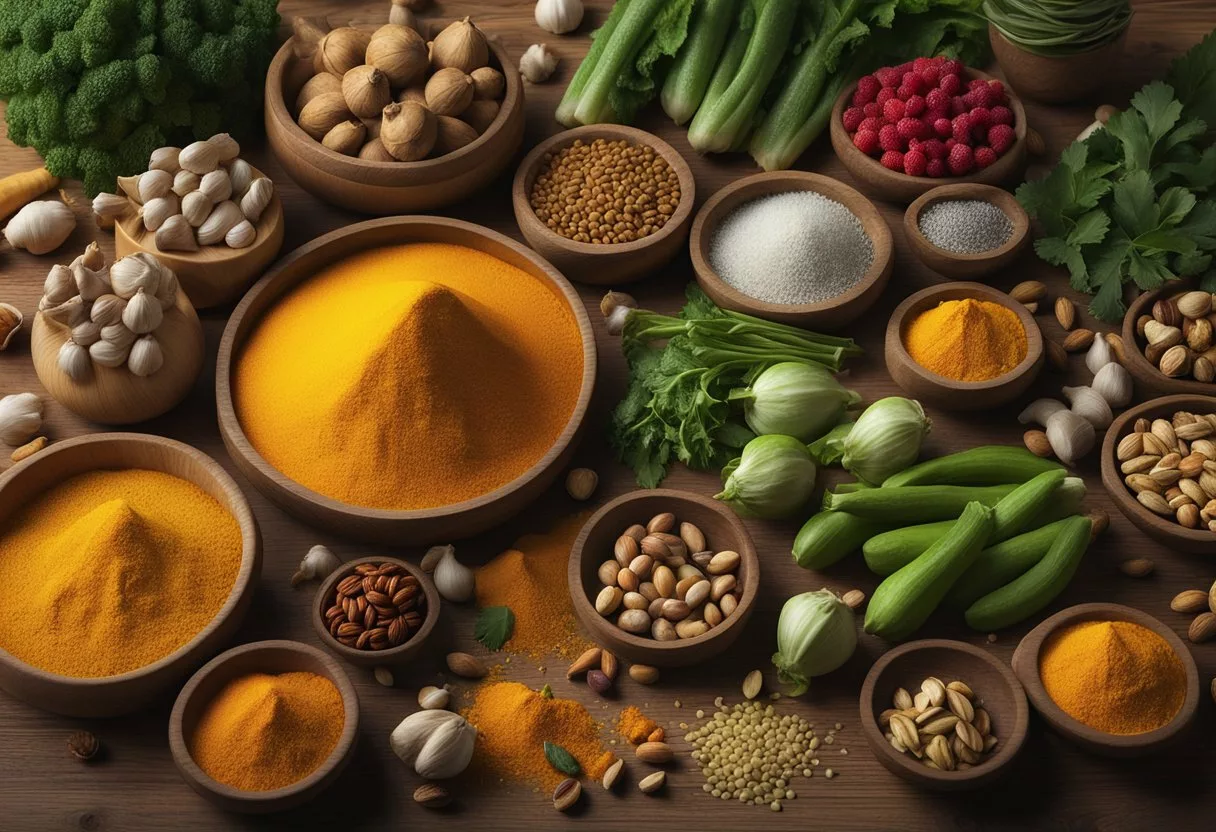
Turmeric is a golden-yellow spice popular in many cuisines. It is widely appreciated for its potential health benefits from reducing inflammation to supporting brain health. Turmeric contains curcumin, a powerful compound that has been studied for its antioxidant properties.
Curcumin in turmeric helps reduce inflammation, which is linked to various chronic diseases. Regular consumption of curcumin-rich turmeric may help lower the risk of these conditions.
In addition to reducing inflammation, turmeric may support cognitive function. This includes the ability to think clearly, learn, and remember. Some research suggests that turmeric can play a role in preventing diseases like Alzheimer’s.
Turmeric also provides essential minerals like iron, copper, manganese, zinc, magnesium, and potassium. These minerals are important for many bodily functions.
One of the most intriguing benefits of turmeric is its potential to lengthen telomeres. Telomeres are the caps on our DNA that shorten with age and stress. By protecting telomeres, turmeric might play a role in promoting longevity.
For more detailed insights, explore this article on the benefits of turmeric for longevity. Also, see how turmeric benefits aging according to more research.
9) Avocado
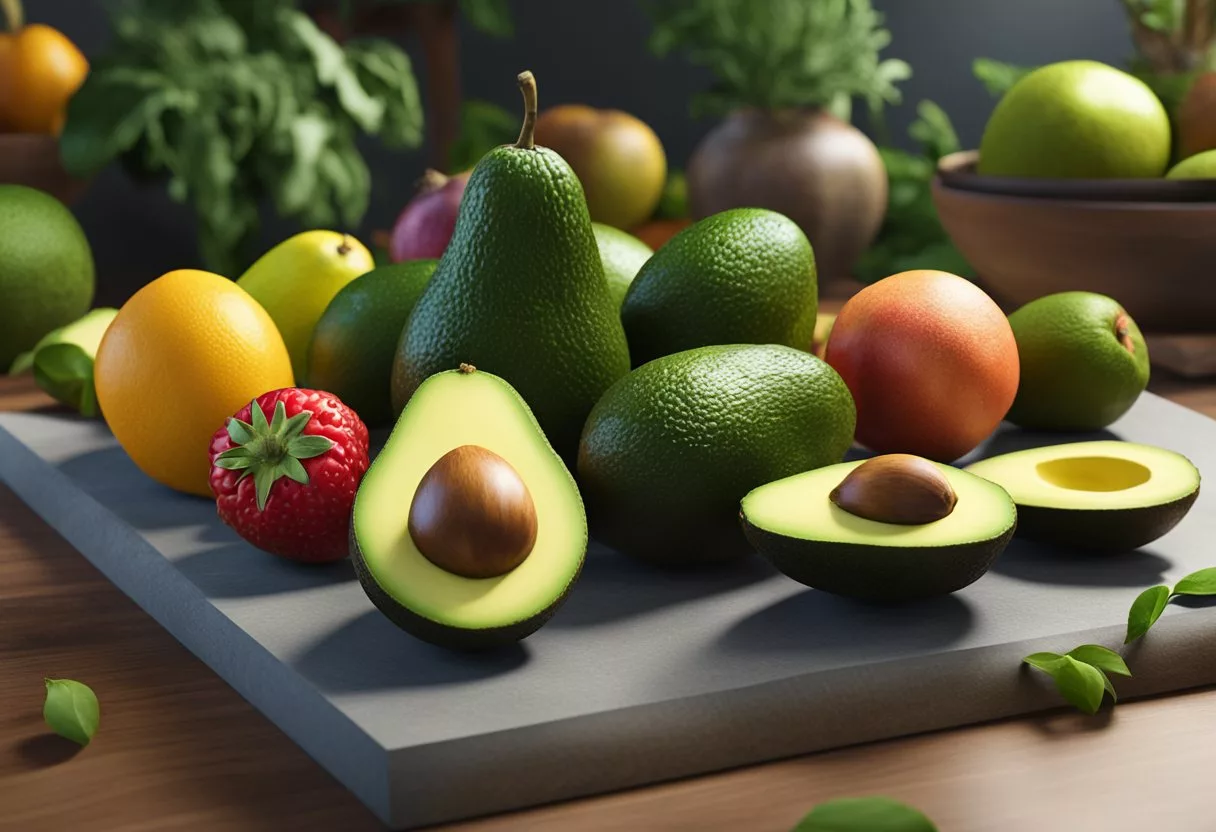
Avocados are a powerhouse of nutrients. They are rich in healthy fats that support heart health. These monounsaturated fats can help lower bad cholesterol levels, reducing the risk of heart disease.
This fruit is also good for brain function. The fats in avocados play a role in protecting the brain. They can help reduce the risk of vascular dementias, which are related to blood vessel issues.
Avocados provide fiber, which aids digestion and keeps you feeling full. Eating avocados can help regulate blood sugar levels, making them a smart choice for those watching their glucose.
Vitamins in avocados, like Vitamins E, K, and B6, support your body in various ways. Vitamin E, for example, protects cells from damage. Vitamin K is essential for blood clotting, while B6 is vital for brain health.
Adding an avocado to your diet can also provide antioxidants. These compounds fight free radicals in your body, which can cause damage and aging.
You can enjoy avocados in various ways. They are great in salads, as a spread on toast, or even blended into smoothies. Their creamy texture and mild flavor make them a versatile addition to many dishes.
10) Fermented Foods

Fermented foods are rich in probiotics, which are beneficial bacteria that support gut health. Examples of these foods include kimchi, kombucha, tempeh, miso, and sauerkraut.
Probiotics help maintain a healthy gut microbiome. This can lead to better nutrient absorption, stronger immunity, and lower inflammation.
Fermented foods such as kefir provide high levels of vitamins and minerals. These include vitamin B12, calcium, and magnesium.
Incorporating fermented foods into your diet can also enhance the flavor of meals. For instance, using miso in soups or salads adds a unique taste and healthy nutrients.
Research indicates fermented foods can be linked to improved heart health and reduced cancer risk. These functional benefits make them a valuable addition to any diet focused on longevity.
Nutritional Benefits Of Longevity Foods
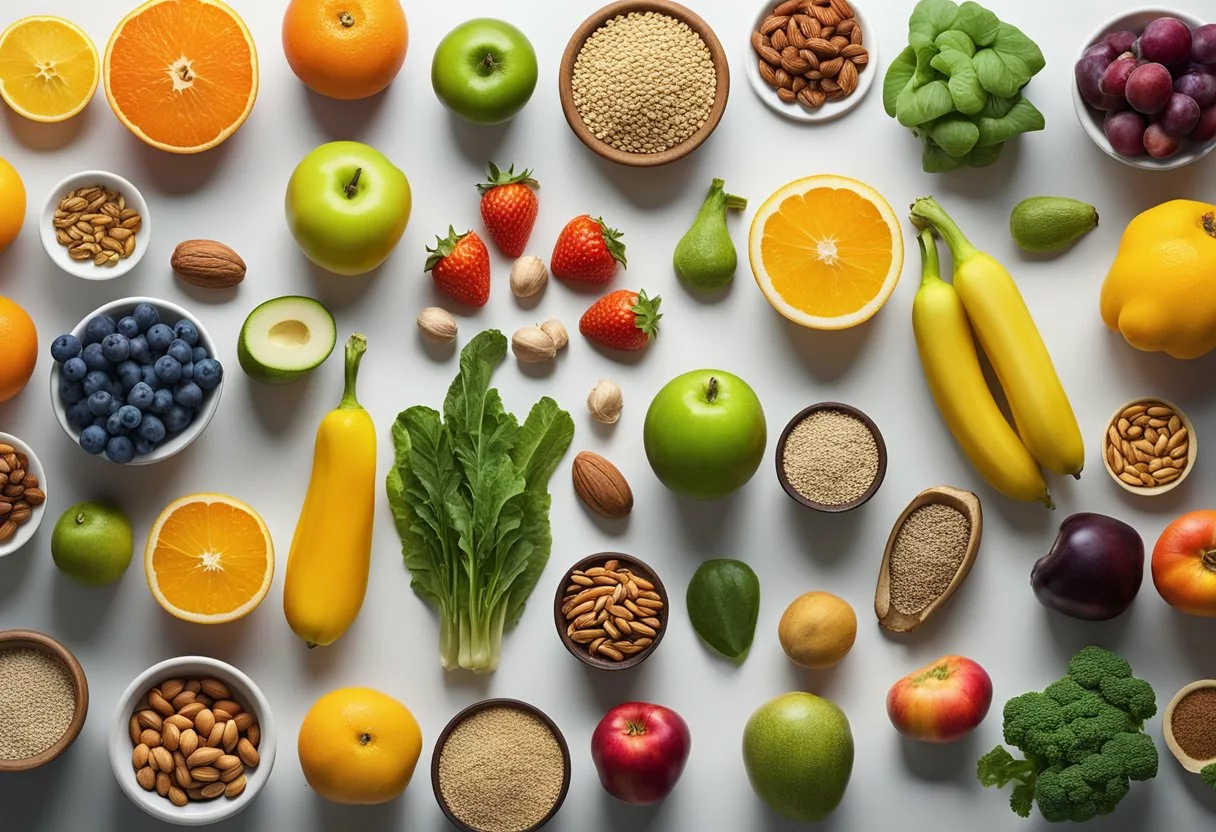
Longevity foods offer a range of benefits, primarily because they are rich in antioxidants and high in essential vitamins and minerals. These nutrients help fight diseases, support vital body functions, and contribute to overall well-being.
Rich In Antioxidants
Antioxidants are substances that help prevent or slow damage to cells caused by free radicals. Foods such as berries, nuts, and dark green vegetables are excellent sources.
For example, blueberries and strawberries are loaded with powerful antioxidants that protect the body from oxidative stress and inflammation. These can help lower the risk of chronic diseases, including heart conditions and cancer.
Similarly, nuts like almonds and walnuts contain Vitamin E and polyphenols, which provide protection against oxidative damage and lower inflammation levels. Green leafy vegetables like spinach and kale are also rich in antioxidants, further supporting overall health and longevity.
High In Essential Vitamins And Minerals
Essential vitamins and minerals are crucial for maintaining good health and promoting longevity. Fatty fish like salmon is an excellent source of omega-3 fatty acids, B-vitamins, selenium, and iron, which support heart health and brain function.
Berries not only provide antioxidants but also vitamin C and fiber, aiding in immune support and digestive health. Legumes such as beans, peas, and lentils offer plant-based protein, fiber, and a range of minerals like magnesium and potassium. These nutrients help stabilize blood sugar levels and support a healthy gut microbiome.
Cruciferous vegetables like broccoli and Brussels sprouts are packed with vitamins C and K, folate, and fiber, contributing to improved immune function, bone health, and digestive health.
Incorporating Longevity Foods Into Your Diet
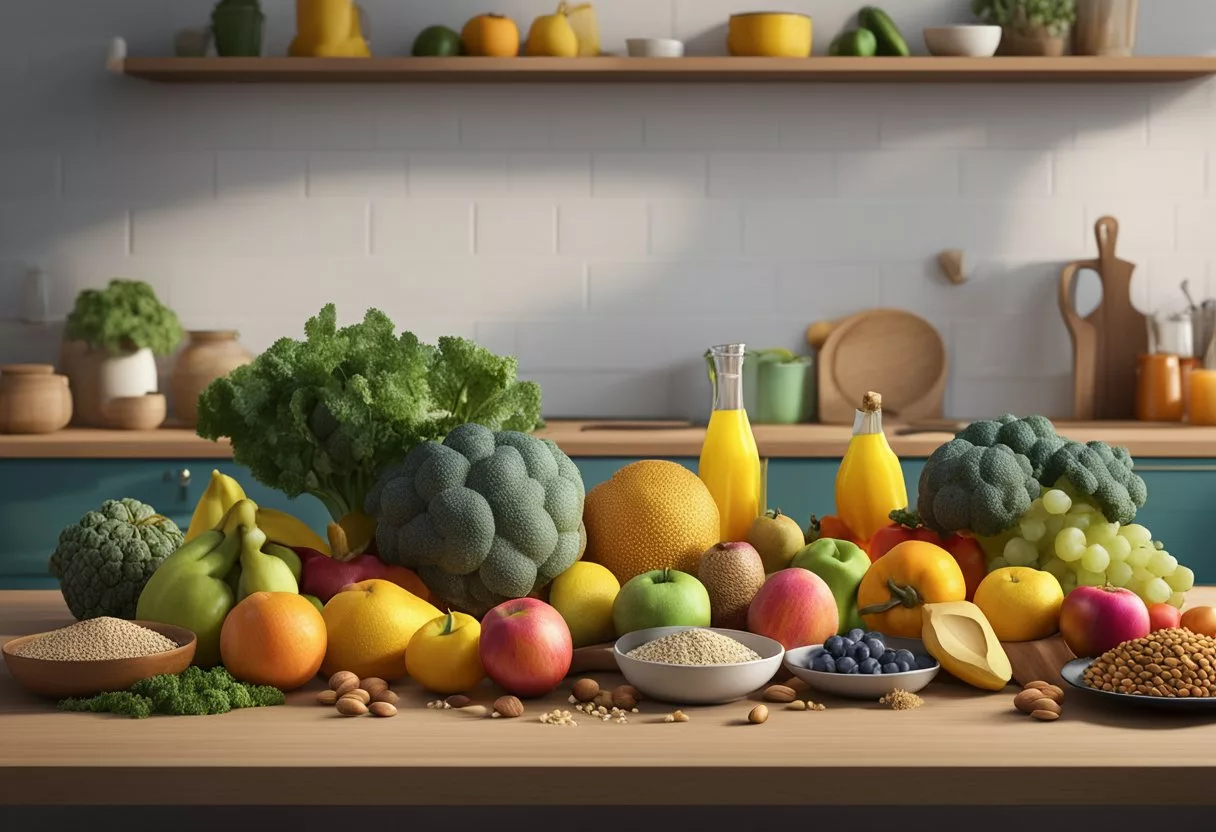
Eating foods that promote longevity can be simple and enjoyable. Here’s how to add these nutritious foods to your daily meals with practical tips and recipes.
Daily Meal Plans
Start your day with a whole grain breakfast. Options like oatmeal or whole grain toast with avocado provide fiber and essential nutrients.
At lunch, include legumes such as lentils or chickpeas in salads or soups. These are excellent for maintaining stable blood sugar levels and keeping you full.
For dinner, opt for fatty fish like salmon. It’s rich in omega-3 fatty acids, which help reduce heart disease risk. Pair it with a portion of colorful vegetables and a serving of nuts for added benefits.
Snacks can include fruits like berries or apples, and a handful of nuts. These options are easy to prepare and carry around.
Simple Recipe Ideas
Chickpea Salad: Mix chickpeas with diced tomatoes, cucumbers, and a splash of olive oil and lemon juice. This makes a refreshing and nutritious light meal.
Salmon with Quinoa and Veggies: Bake a salmon fillet and serve it over a bed of quinoa mixed with steamed broccoli and carrots. This combination offers protein, vitamins, and minerals.
Oatmeal with Berries and Nuts: Cook your oats with milk or water, top with fresh berries, and sprinkle with almonds or walnuts for a healthy start to your day.
Lentil Soup: Combine lentils, diced veggies, and spices in a pot. Simmer until the lentils are tender, making a hearty and fiber-rich meal.
These recipes are straightforward and include ingredients known for promoting longevity. Incorporating them regularly can enhance your diet and overall health.
Scientific Research On Longevity Foods

Scientific research has identified certain foods that may contribute to increased lifespan and better health. These foods are often rich in nutrients and have been extensively studied for their potential benefits.
Studies Supporting Longevity Benefits
Research has found that legumes like beans, lentils, and chickpeas are good for longevity. They are rich in fiber and plant-based protein, which help stabilize blood sugar and reduce inflammation.
Fatty fish such as salmon and mackerel are also beneficial. They provide essential omega-3 fats that help lower the risk of heart disease and sudden cardiac death.
Dark leafy greens are another key food, as they are packed with vitamins and minerals that support overall health and brain function.
Historical Context And Evolution
Historically, traditional diets in some cultures have included many of the same foods now recognized for their longevity benefits. For example, the Mediterranean diet, rich in olive oil, fish, and vegetables, has long been associated with lower rates of heart disease and longer lifespans.
In Asian cultures, diets high in soy products, rice, and vegetables have also shown positive effects on health and longevity.
The relevance of these traditional foods continues to be validated by modern scientific research, demonstrating that ancient dietary practices often had strong health foundations that remain applicable today.
Frequently Asked Questions
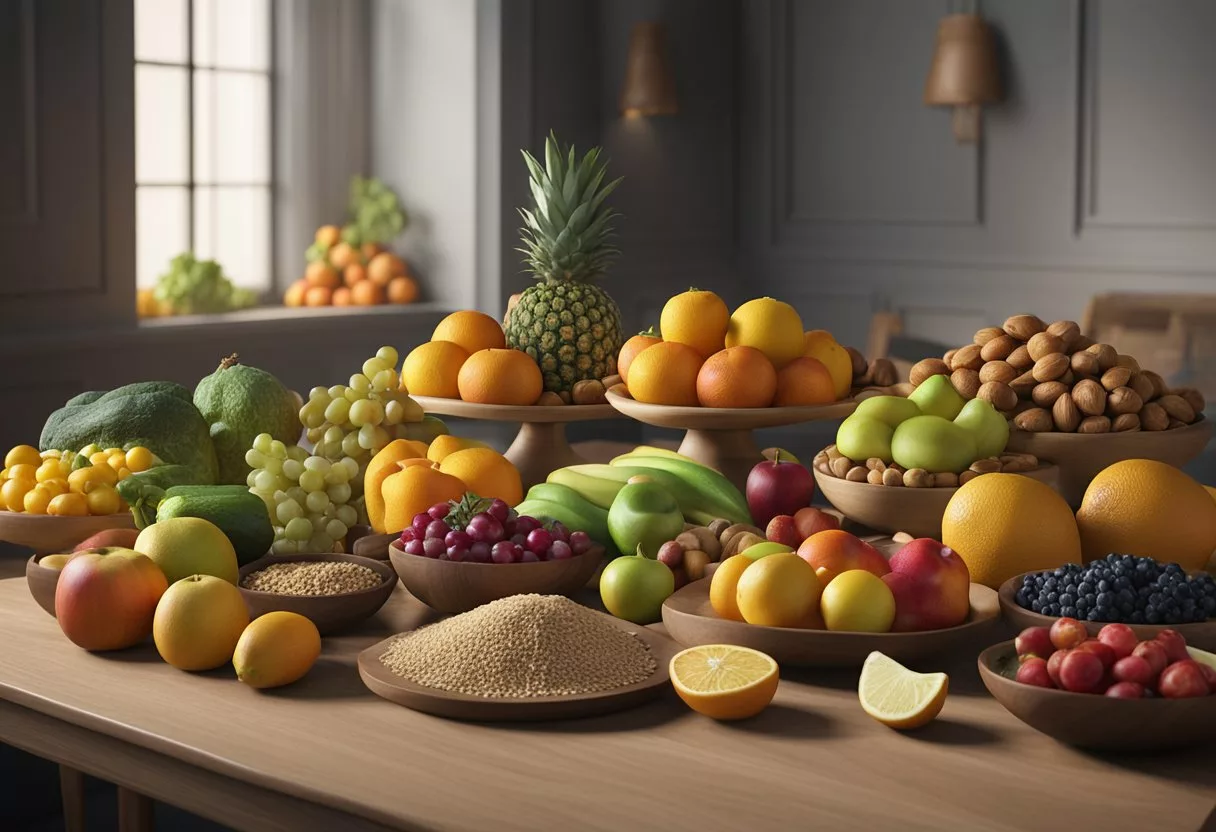
These FAQs address key concerns about foods and dietary patterns that can enhance longevity and improve overall health.
What are the top foods known to contribute to a longer lifespan?
Certain foods like blueberries, salmon, and nuts and seeds are known to support a longer life. Blueberries are rich in antioxidants, while salmon provides essential omega-3 fatty acids. Nuts and seeds offer crucial protein and fiber.
Which foods should be avoided to maximize longevity?
Foods high in processed sugars, trans fats, and excessive red meat consumption can negatively impact longevity. Instead, it’s better to focus on whole foods and healthy fats.
Can you name a single food that is highly regarded for its life-extending properties?
Dark chocolate is often highlighted for its health benefits. Rich in antioxidants, it can help reduce inflammation and improve heart health when consumed in moderation.
How can diet influence the potential to live a longer, healthier life?
A balanced diet with a variety of nutrient-dense foods can help manage weight, improve heart health, and reduce the risk of chronic diseases. Incorporating foods like olive oil and leafy greens supports overall well-being.
What are some scientifically supported superfoods known for enhancing longevity?
Foods like salmon, which is packed with omega-3 fatty acids, and nuts and seeds, which are high in protein and healthy fats, are celebrated for their life-extending qualities.
Are there specific dietary patterns associated with increased life expectancy?
The Mediterranean diet, which includes a high intake of fruits, vegetables, whole grains, and healthy fats like olive oil, is often praised for its association with increased life expectancy and reduced risk of chronic illness.
